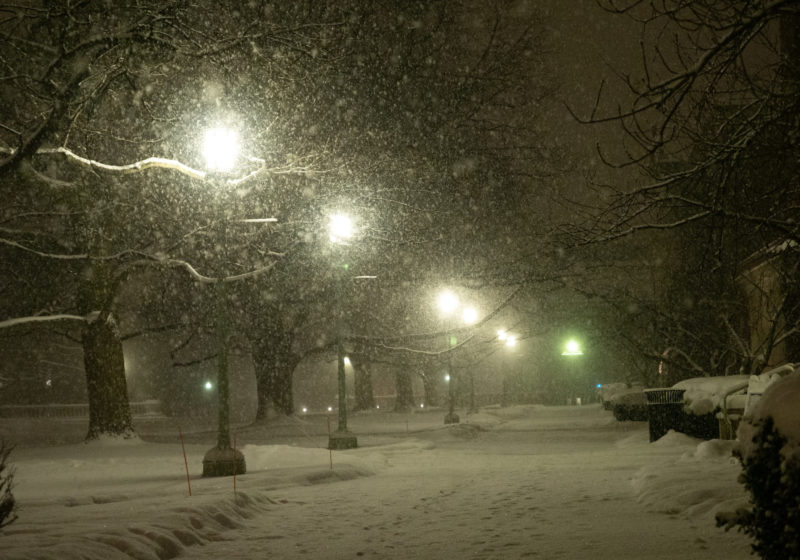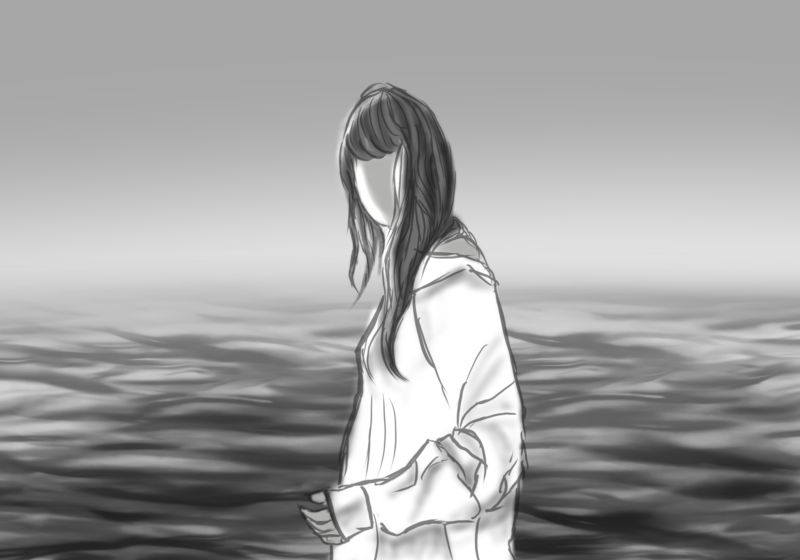With an average snowfall of 77 inches compared to the national average of 28, it’s not a surprise when snow hits Rochester, NY. However, this past week’s snowstorm, is one of many examples of how climate change is potentially affecting Northern weather conditions, as well as the people who inhabit the area. Over the past century, extreme snowstorms have increased due to warmer-than-average ocean surface temperatures. This can lead to high amounts of moisture and contribute to the extremity of snowstorms specifically in the eastern U.S. region, according to NAA.
These changes aren’t only affecting the environment, but people as well, especially minority communities who suffer from lack of accessibility and resources. During storms such as last week’s storm, which hit Rochester Sunday evening into Monday, communities can be greatly impacted by a lack of access to transportation, adequate housing, and food.
To get a better understanding of the storm, CT interviewed Karen Berger, Associate Professor of Earth and Environmental Studies. Berger explained that the storm was caused by cold air from the North Pole extending downward into Canada and the central U.S., called a “polar vortex lobe.”
“While we can’t say that this particular storm was caused by or necessarily stronger because of climate change, warming in the polar region can disrupt the vortex and allow very cold weather to move into lower latitudes,” wrote Berger in an email to the CT. “For cities like Rochester, it is important to identify how climate change can increase exposure to extreme cold (and extreme heat in the summer) and how to support people who are vulnerable to those extremes. This includes having sufficient cooling centers in the summer and warming centers (or aid with heading costs) in the winter.”
Junior Wesley Mawn, Environmental Studies major and Program Assistant for Community Engaged Learning, spoke with CT from his position with Metro Justice, a grassroots organization dedicated to social, economic, and racial justice in Rochester, about how energy democracy plays a role in the many issues residents face during such extreme conditions. Mawn noted that gas prices are up, and as prices increase nationwide, there are many reparations as supply outpaces demand.
“RG&E is known for having pretty high rates, with the average monthly bill last winter (November-March) being $770. This winter, the average monthly RG&E bill is predicted to be about $935 and bills across New York State are expected to increase by 21%,” said Mawn. “Rochester already has an energy burden issue. This is when a family pays more than 6% of their monthly income on energy and in Rochester, 37% of households pay between 10-25% of their income on RG&E bills, 44% of Black & Latine households are energy burdened, and 25% of low-income households have energy burden above 16%. This is especially problematic for our homeless population and people who may become homeless this winter.”
In other words, Rochester residents can easily fall into debt and lose their home due to high electricity bills. Likewise, when tenants try to apply for new homes, histories of unpaid bills hurt their applications in the long run.
Mawn also noted that “RG&E made $89 million between May 2019 and April 2020, but for decades we’ve seen a lack of investment in grid maintenance.” The industry is not making an effort towards sustainably keeping houses powered.
Additionally, during snowstorms, there is a high potential for residents to suffer the effects of poor grid maintenance and power outages. “For a winter storm, residents who do not have affordable or adequate housing may need access to warming centers to avoid health impacts from cold exposure and health threats from reliance on unsafe ways to keep themselves warm (old space heaters, gas stoves, etc.),” wrote Berger.
To save energy, Berger recommends that housing residents lower the thermostat when leaving a space for a while, as well as at night when already under covers.
If you or someone you know is in need of aid, reach out to resources like Rochester Mutual Aid Network and Roc Food Not Bombs, which has a map of free food stands around Rochester.





